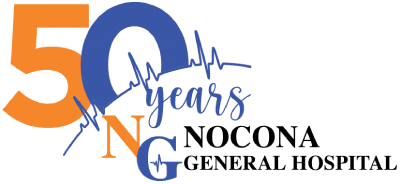Education & Awareness
Nocona General Hospital & Rural Health Clinics is interested in providing our patients and community with information in a wide variety of areas related to healthcare. The links below are for your education. If you have any questions, or would like information on a particular topic, please visit with your physician or send us an email!
(These documents/links are independent of NGH – NGH is not responsible for the content contained herein.)
Child Safety Seat Distribution & Education
Is your child in the safest car seat? Click on the links below for more information!
DSHS_ carseat flyer_Gainesville_06.03.2022 (English)
DSHS_ carseat flyer_Gainesville_06.03.2022 (Spanish)
June is Alzheimer’s & Brain Awareness Month. One in nine American age 65 and older have Alzheimer’s disease. The information and links provided are educational tools concerning this disease – resources for both the patient and the care giver.
Alzheimer’s – Different from Normal Aging
Alzheimer’s FAQ – English
Alzheimer’s FAQ – Spanish
Someone with Alzheimers may need frequent reminders about the day’s schedule, ask the same question over and over, or forget their children’s names. Learn other signs and what to do if you suspect someone you love might have Alzheimer’s: dshs.texas.gov/Alzheimers/WarningSigns/.
Finding the right care for a loved one with Alzheimers is important. You have many options including in-home care, adult daycare, assisted living, and nursing facilities. Learn more: https://www.dshs.texas.gov/alzheimers/options.shtm.
For people with Alzheimers, advance planning is essential. Loved ones may be able to manage their affairs today but will need to rely on others to act in their best interest later on. Learn more: https://www.dshs.texas.gov/alzheimers/advanced-directives.html.
As you’re helping a loved one with Alzheimers, don’t try to do it all on your own. Ask family and friends to help and accept their help when offered. Build a support system. Get more tips: https://www.dshs.texas.gov/alzheimers/hints.shtm.
Have you noticed a loved one withdrawing from hobbies or social engagements? It might be an early sign of Alzheimers. Learn about other early signs and what to do if you think someone you love might have Alzheimer’s: https://www.dshs.texas.gov/Alzheimers/WarningSigns/.
